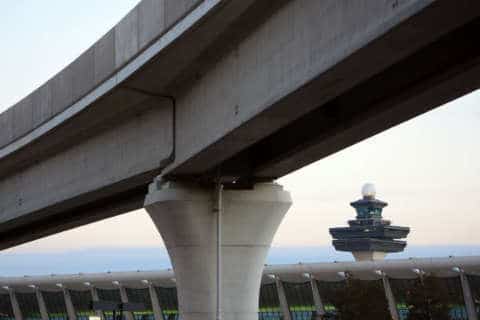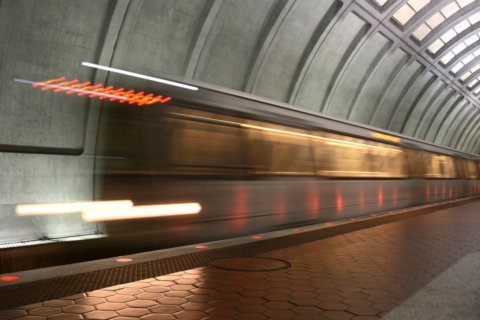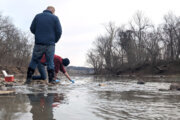Metro is preparing to launch Silver Line service to Dulles International Airport and Loudoun County in Virginia around September 2020, but the agency is still considering forcing major changes to construction plans that could push back that timeline.
Metro’s Office of Inspector General and a construction expert the office hired, warned Thursday that faulty concrete panels that frame most of the new stations may need inspection every three months after Metro takes ownership of the line if the panels are not fully replaced.
Such inspections could require regular single-tracking or other service disruptions on brand-new stretches of track.
“That impacts service on an ongoing basis. That impacts, obviously revenue, and it impacts costs. And we don’t know yet what that means because that’s 1,500 panels that we’ve got to come up with how would we even do this,” Metro General Manager Paul Wiedefeld said.
Construction standards called for the panels to last 100 years.
When asked whether Metro should insist on having all panels removed so new ones can be made and installed, Wiedefeld said Metro should take nothing off the table since the agreed upon design is not what ended up being built in this case.
A demand of that scale would push back the opening date significantly, but it could help avoid potential long-term maintenance issues.
Arlington County Board Chairman and Metro Board member Christian Dorsey suggested the change order could have come more than two years ago, when concerns with panels were first raised.
The Metropolitan Washington Airports Authority and its contractors who are building the rail line are confident the concrete panel issues have been addressed with protective sealant, which will be reapplied approximately once every 10 years.
Consultant Eldon Tipping, who was hired by Metro’s inspector general’s office, disagrees. While the risk is small, there is still risk road spray from Dulles Toll Road and Dulles Access Road could speed up deterioration of the panels, he told a Metro Board Committee Thursday.
Separate cracking in concrete panels on buildings in the rail yard is less of a concern, since it has a different cause. The Airports Authority contractor building the rail yard is looking into an alternative sealer that would last for the life of the building.
The concrete panel issues are among four t Metro considers as outstanding, since construction is essentially complete and the focus moves into testing and commissioning.
The Airports Authority and the contractors building the line are working to address the other three issues, which are: problems at some spots where rails are connected to concrete rail ties, issues with some locations where trains cross from one track to another not being level, and problems with the rock ballast that supports the tracks in the rail yard.
On Wednesday, Airports Authority leaders said there are plans to address all the issues, and the goal is to have the project substantially complete and turned over to Metro in April.
If that goal is met and the issues are addressed, Metro could open the line for service sometime between early July and late September.
Since it will take months to hire and train staff, and Metro is still considering contracting out operations to a private company, Metro needs to start that process this winter.
“This thing is coming,” Wiedefeld said.
The Metro Board expects to adopt a budget amendment in January to pay for ramp up costs through the end of June. Additional funding is expected to be added to the budget proposal being considered this winter will take effect in July.
It all anticipates riders will be able to board Silver Line trains to and from Ashburn and Dulles Airport by the end of 2020 at the latest, Metro Silver Line head Neil Nott said.
Nott suggested his best guess for the start of service would be September 2020, as long as the outstanding construction issues are resolved.
Final tie-in work of the new stations and tracks to the first phase that opened in 2014 is moving forward starting this weekend.
Wiehle-Reston East will be closed most weekends from now through March to connect and test automatic train control systems.







